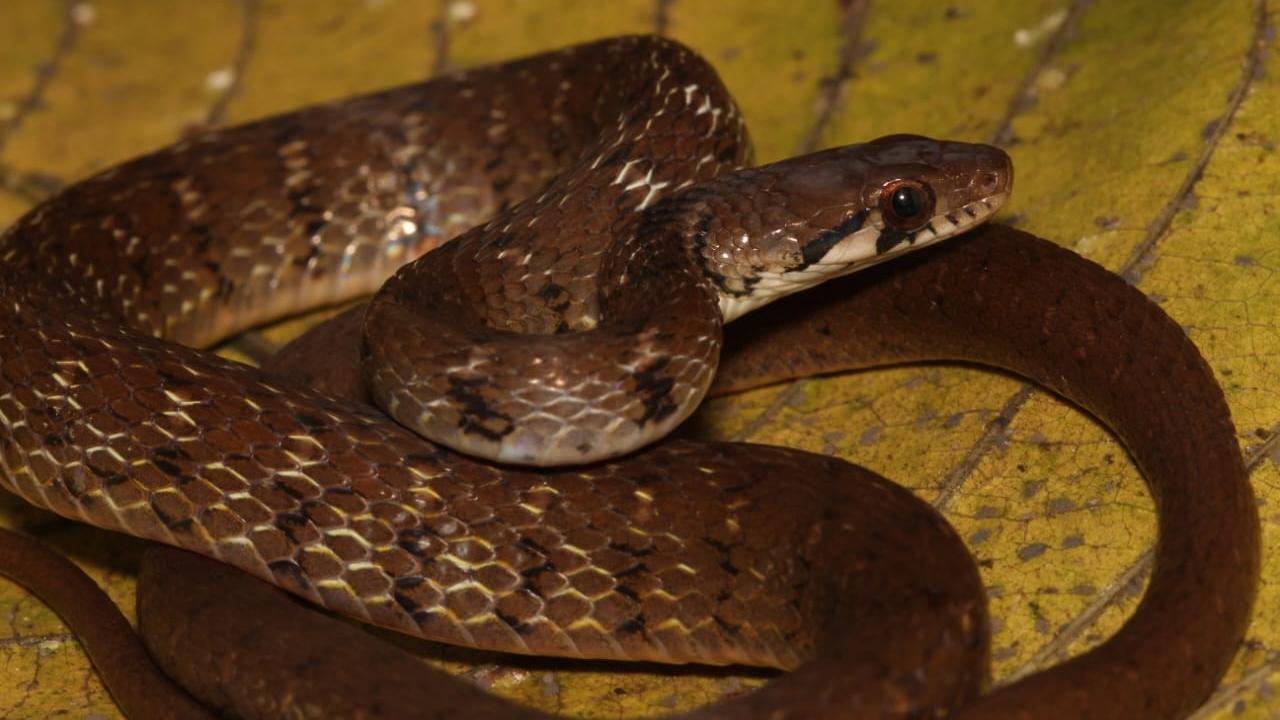Researchers have named the genius ‘Sahyadriophis’, derived from the Sanskrit term 'Sahyadri' and the Greek word 'ophis’ meaning snake

Pic/Thackeray Wildlife Foundation
A TEAM of researchers from the Thackeray Wildlife Foundation has made a significant breakthrough in the field of herpetology. Led by Harshil Patel and Tejas Uddhav Thackeray, the team has identified a new genus and species of snake in the rich ecosystem of the Western Ghats. This area—known for its diverse plant and animal life—has revealed the mysterious 'Sahyadriophis' genus. The name comes from the Sanskrit term 'Sahyadri', referring to the Western Ghats, and the Greek word 'ophis’, meaning snake.
The discovery was made during extensive surveys conducted by the Thackeray Wildlife Foundation to study the variety of life in the Western Ghats. Patel and Thackeray found that the Beddomme's keelback—which resides in the Pune district and southern parts of the Western Ghats—actually consists of two separate species. This surprising find led to further research, backed by data from the Natural History Museum and the Bombay Natural History Society. Advanced scans and molecular data confirmed the existence of two species and introduced a completely new genus, unique to the Western Ghats.
One of the researchers, Patel explained, “The new species, located in the northern part of the Western Ghats, is called Sahyadriophis uttaraghati or Northern Sahyadri keelback. These snakes are mostly active during monsoons and are often found near streams. Their diet primarily consists of frogs and their eggs. These snakes are gentle in nature and rarely bite when handled.”
Juveniles of the species have a distinctive mark on their nape that changes as they grow. The new species can be differentiated from its southern counterpart—Sahyadriophis beddomei (Beddome’s Sahyadri keelback)—by a longer tail and higher number of scales on the tail's underside, known as subcaudals.
Thackeray, who is another member of the research team, emphasised the significance of this discovery saying a new snake genus found in the Western Ghats highlights the importance of the area as a hub for unique evolutionary lineages. “We are advocating for more dedicated surveys to document and safeguard the Western Ghats' exceptional biodiversity,” he said.
According to Thackeray, Allopatric speciation occurs when a biological population become geographically isolated (lack of gene flow) due to different kind of geographical barriers. Some species sometimes looks alike hence considered widespread making them ‘least concern’. But when someone does thorough comparative research based on genetic, morphological and geographical data by sampling across their geographical range, it often turns out that the single widely distributed species is actually composed of multiple cryptic species, especially small animals which have low dispersal ability or have specific micro-habitats requirements. The current research is good example of this. Studies like this helps in assessing actual geographical range and specific habitat of a perticular species and provide important baseline data for their conservation.
 Subscribe today by clicking the link and stay updated with the latest news!" Click here!
Subscribe today by clicking the link and stay updated with the latest news!" Click here!








